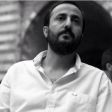Bruinessen says that since 1999 there has not been much progress in the resolving the Kurdish problem in Turkey; "I think the problem remains as it is. The Kurdistan Workers' Party (PKK), too, had an ambiguous stance. It did not set its politics clearly.
"For all their differences the Kurds are certain that they are one people. They aspire to attain a separate political structure," says Bruinessen.
Bruinessen, an expert on Kurds of Dutch origin, answered BIAnet's questions on US politics with regards to Kurds, relationship between Kurds and the US, the new shape that the Kurdish problem in Turkey has taken and changes in the Kurdish social structures:
US can secure the Kurds
At the moment Kurds are actively supporting the US. Where do you think this relationship between Kurds and US will lead to? To what extent can the US secure Kurdish rights and how far can the Kurds go?
In Iraq, Kurds will play an important role in the establishment of the government, but because the future of Iraq is currently uncertain, we do not know if this new state will be federal or united. In the new structure the Shiites, too, will play a very important role. What we can say at the moment is that the US presence is crucial for the Kurds because the US can secure the Kurds.
The Kurds form 20-22% of the Iraqi population. They are also the most organised and the most intensively armed group in Iraq. But in the new Iraqi state Kurdish peshmergas will join the Iraqi army. They will not have separate armed forces. With their concern for gaining their rights as a minority Kurds demand assurance from other states.
For the Kurds, the US is crucial, but for the US there are many other factors besides the Kurds. I think in the long run Turkey will be more important than the Kurds for the US. Because of this I have doubts about the extent to which the US will allow Kurds their rights.
Is there difference of opinion amongst the Kurds about relationships with the US? How do you think the Kurds in Turkey, in particular, approach the US?
Of course there are many different opinions. The situation and the expectations of the Kurds here are very different. But from what I understand the Kurds in Turkey consider the situation in Iraq as a positive one. The Kurds here expect cultural development. Developments in Iraq will effect the Kurds here as well. The Kurdish have a minority culture in Turkey and so it constantly faces the danger of disappearing. The Kurdish language is also endangered. However, a strong Kurdish presence in Iraq will affect these problems in a positive way.
The Kurdish regions in Turkey have ceased to develop because of the "state of emergency", and actually this caused a great regression. This effects Kurdish tendencies. Yet there is not much support from the Kurds in Turkey to the Iraqi Kurds, because generally the Kurds here do not approve of the political line of Iraqi Kurds. They do not welcome the Iraqi Kurds' close relationship to the US. There are also ideological differences in between. They are proud that the Iraqi Kurds have gained rights but their demands are different.
The idea of a Kurdish state is still in
Turkey, Syria, Iraq and Iran still feel threatened by the prospect of a Kurdish state. Kurdish politicians state at every turn that they are not aiming for an independent state. Do you think that the idea of founding an independent state is still a dominant one amongst the Kurds?
Ultimately the Kurds are a different people. The Kurds in Turkey and those in Iraq see themselves as belonging to the same people. For all their differences they are certain that they are one people. They wish to attain a seperate political structure. Kurds in Turkey have been culturally incorporated into the culture of Turkey. At the same time, however, in a different political context there always is the idea of a Kurdish state.
Kurdish intellectual Umit Firat said "Iraqi Kurds are a closer ally of the US than Israel is"...
I think this is an exaggeration. Israel is a totally different ally, because it has the power to impose its demands upon the US. But Kurds are in no such position. Kurds do not have a lobby in Washington. Kurds have no choice. They had to ask for US' support. If you ask any Iraqi Kurd why they are collaborating with the US, the answer you will get is "Our main trouble was the Saddam Hussein regime. We could not have toppled it on our own. Nor could the people of Iraq. The only force in the world that is capable of this is the US. We may not like the US but we are in need."
In 1972 Barzani had secured an agreement with Israel and US. The leftist organisations in the Middle East were highly critical of Barzani then, too. But Barzani was saying "For Kurdistan, I will even collaborate with the devil".
Those who oppose current politics of Iraqi Kurds suggest that in the long term Kurds will establish a second Israel in the Middle East...
How could this be? Israel was established with a population brought from abroad. These people have the control of the state, and the local population is expelled. The Kurdish situation is the exact opposite of this. But an independent Kurdistan could be the ally of Israel and US, and Turkey is a close ally of these two states. Moreover Turkey is Israel's only ally in the Middle East.
KADEK seeks negotiations
Is there a possibility of US launching attacks on organizations in Northern Iraq excluding Patriotic Union of Kurdistan and Kurdistan Democratic Party?
KADEK's situation is the most interesting one concerning Turkey. Even though the US has declared KADEK to bea terrorist organization, I do not think that they will attempt to destroy KADEK. I think they will disarm them. KADEK has taken a very interesting stance on this, they said that the US presence opens up new opportunities for the Kurds. Maybe KADEK wants to begin negotiations through the US. US has pointed only to the Islamic organizations in Iraq as sources of threat. And these organizations were US' excuse for attacking Iraq. In this regard KADEK's position is different.
You are saying that KADEK wants to begin negotiations with Turkey through US, how could this eventuate?
KADEK hopes that US will be the mediator. It is difficult to foresee if this will eventuate or not. People from Turkey will know this better than I do.
Kurds consider Turkish left to be Kemalist
You wrote that in the 1980s, the Turkish left did not show enough concern for the struggle of the Kurds, do you think this has changed?
I will not be able to offer a balanced account on this, because I have not been following the Turkish left closely recently. But the Kurds are usually not content with the Turkish left. They say, for example, that the Turkish left "has no other views but Kemalism", they see the Turkish left as supportive of the unitary state...
Kurds usually complain about being recognised inadequately or erroneously. What is the current European impression of the Kurds?
When I began researching on the Kurds, no one in Europe knew who they were. PKK introduced the Kurds to the Europeans. And the Europeans did not have a very positive view on the Kurds. But now they know that the Kurds have very few rights and especially want them to gain their cultural rights.
Since 1999, there has not been a major conflict between PKK and Turkey. In the last four years the tension in the Southeast of Turkey has dropped. But the Kurdish demands have not been met yet, when you consider these last four years, do you see any progress in the resolution of the problem or does it remain as it is?
I think the problem remains as it is. PKK, too, had an ambigious stance and no clarity of politics. Besides there was no strong political movement that could pose an alternative to PKK. The armed movement is at rest but KADEK's politics is something I cannot understand because we don't encounter any clear politics. Yet at least during this process, non-governmental organizations became more visible. I see this as a positive development.
Feudality is in full force
Leftist organizations that emerged amongst the Kurds usually claimed that they will put an end to or at least weaken feudal structures. To what extent do you think they have achieved this?
PKK, for example, really did attempt to remove the feudal structure, and even attacked feudal rulers. Before 1980 PKK mainly targeted feudal rulers and rival groups. Within PKK, feudal rulers never had major roles. Yet after 1985, Turkey came up with the village guards system. And with this system, the feudal system gained strength. Compared to the results of the research I have done during 1975-76, in some regions feudality is stronger today. Village guards were given a status above law and so they used this to gain more power.
Also, there was a huge wave of immigration, mainly compulsory, during 1994-95. This altered the tribal system but did not destroy it, because those who have immigrated still experience tribal membership. Those who settle in large cities feel obliged to be bound to their tribes. And the result of this is the strengthening of tribal bonds...
You have been researching on Kurds for years. How is your relationship with the Kurds now, how do they approach you?
I am a western man, I may have a different outlook on things. I am happy with the reactions of the Kurds.
Next research project on ethnic identities
What is your next project?
Recently I have been researching on the identity struggles in Turkey, Iran and Iraq, I am thinking of writing a book on this. Identity struggles have been prevailing in the world since the 90's. Ethnic, religious, sexual identities are very important. There are interesting regions for case study in Turkey.
For example, young people who went to Europe faced identity crises. "Are we Kurdish or Turkish" they asked, in search of their identity. I am very much interested in this search.
Prof. Dr. Martin van Bruinessen is a social anthropologist researching on Kurds since 1974. He is known for his detailed sociological work on Kurds.
His publications include "Kurds and Identity Politics", "Agha, Shaikh and State", "Being a Kurd, a Turk, an Alevi", "Eviliya Celebi in Diyarbekir" (HA/NK/BB/BE)





